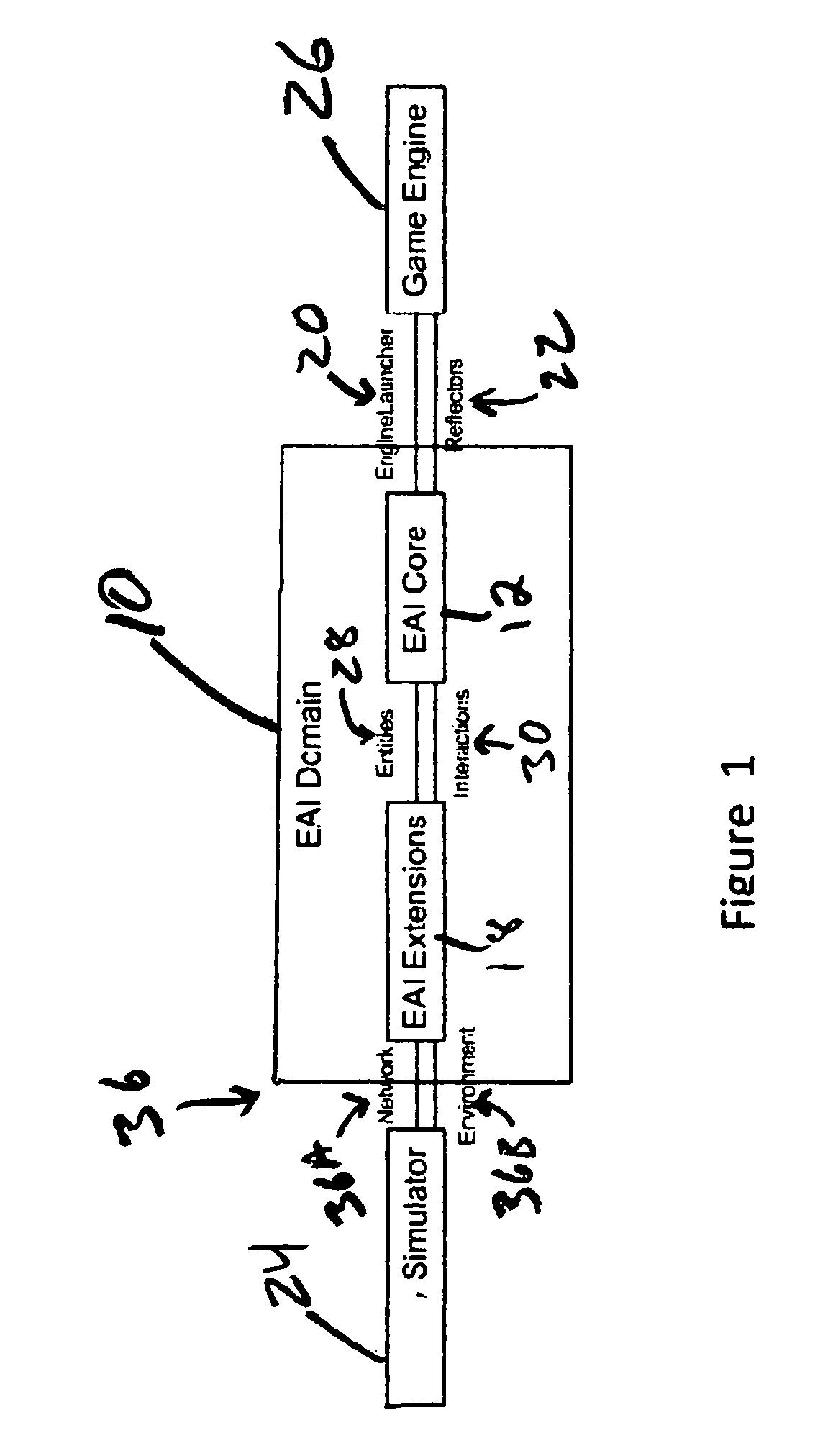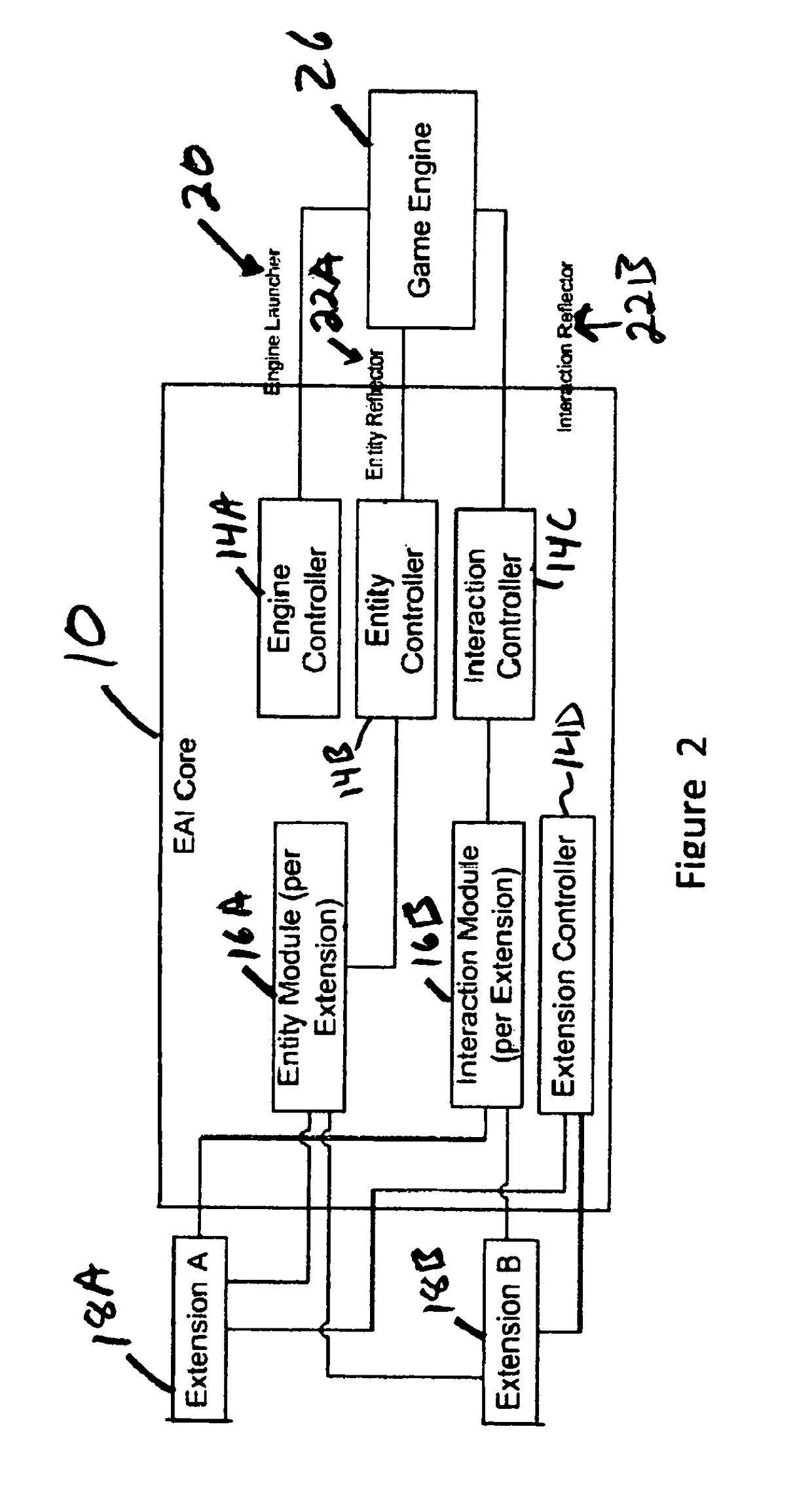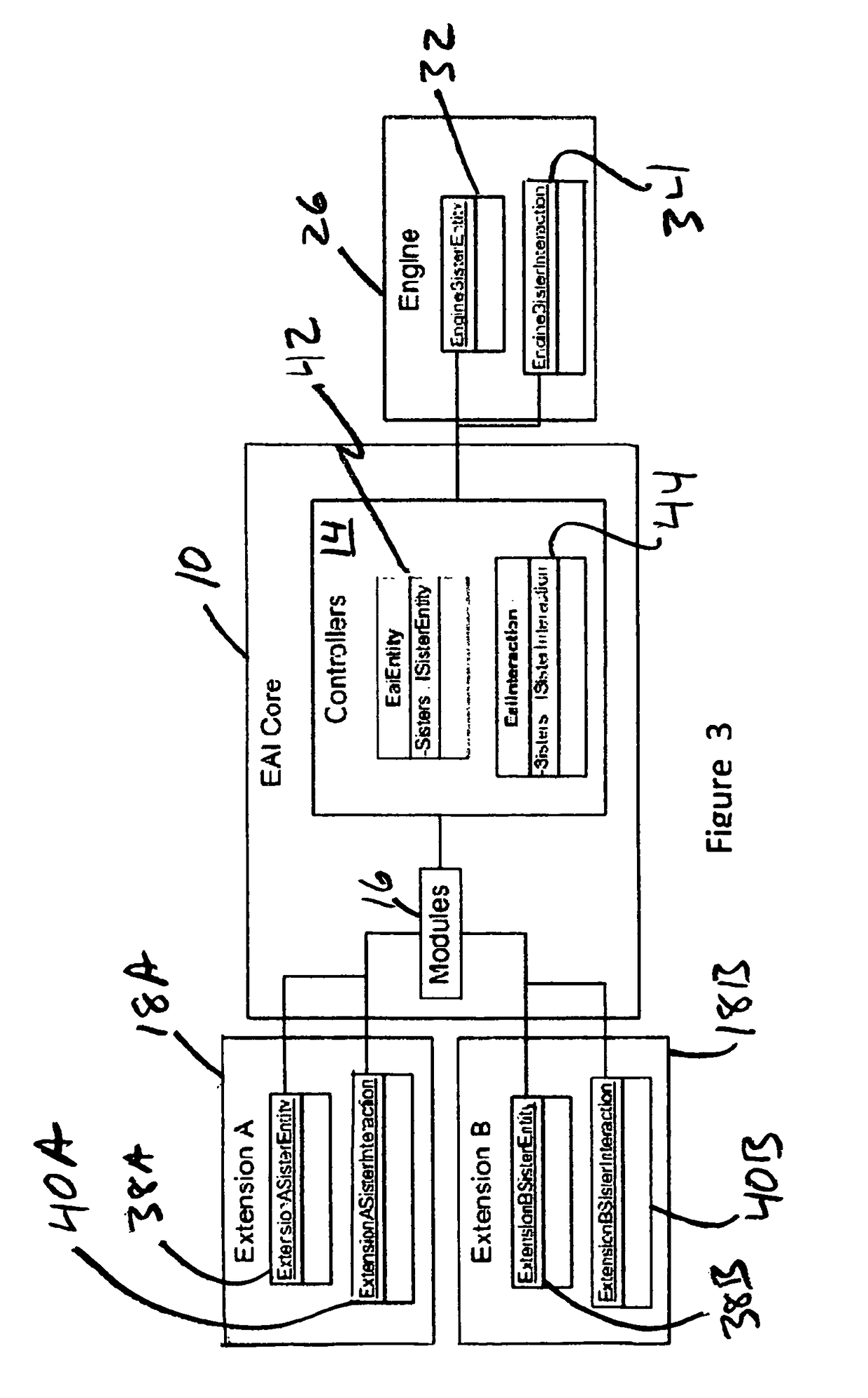Engine agnostic interface for communication between game engines and simulations systems
a game engine and simulation system technology, applied in the field of simulation systems, can solve the problems of inability to re-use previous development, complex maintenance problems, and inability of integrators to work with outdated software code, and achieve the effect of flexible and rapid representation of any training scenario
- Summary
- Abstract
- Description
- Claims
- Application Information
AI Technical Summary
Benefits of technology
Problems solved by technology
Method used
Image
Examples
Embodiment Construction
Overview
[0041]The engine agnostic interface (EAI) 10 of the preferred embodiment is a software architecture utilizing an abstract engine application programming interface (API) that exposes only necessary components of EAI 10. EAI 10 interfaces between Simulator 24, such as military training simulator, and Game Engine 26.
[0042]As depicted in FIGS. 1 and 2, the components of EAI 10 are EAI Core 12 (which is comprised of Controllers 14 and Modules 16), Extensions 18, Launchers 20, and Reflectors 22. Controllers 14 include Engine Controller 14A, Entity Controller 14B, Interaction Controller 14C and Extension Controller 14D. Modules 16 include Entity Module 16A and Interaction Module 16B. There is one of each type of Module 16 per each Extension 18. Through these components, EAI 10 has enough flexibility to generate a generic modular system that can interoperate with other EAI implementations. Although each controlling application needs its own set of Extensions 16, the final implementa...
PUM
 Login to View More
Login to View More Abstract
Description
Claims
Application Information
 Login to View More
Login to View More - R&D
- Intellectual Property
- Life Sciences
- Materials
- Tech Scout
- Unparalleled Data Quality
- Higher Quality Content
- 60% Fewer Hallucinations
Browse by: Latest US Patents, China's latest patents, Technical Efficacy Thesaurus, Application Domain, Technology Topic, Popular Technical Reports.
© 2025 PatSnap. All rights reserved.Legal|Privacy policy|Modern Slavery Act Transparency Statement|Sitemap|About US| Contact US: help@patsnap.com



